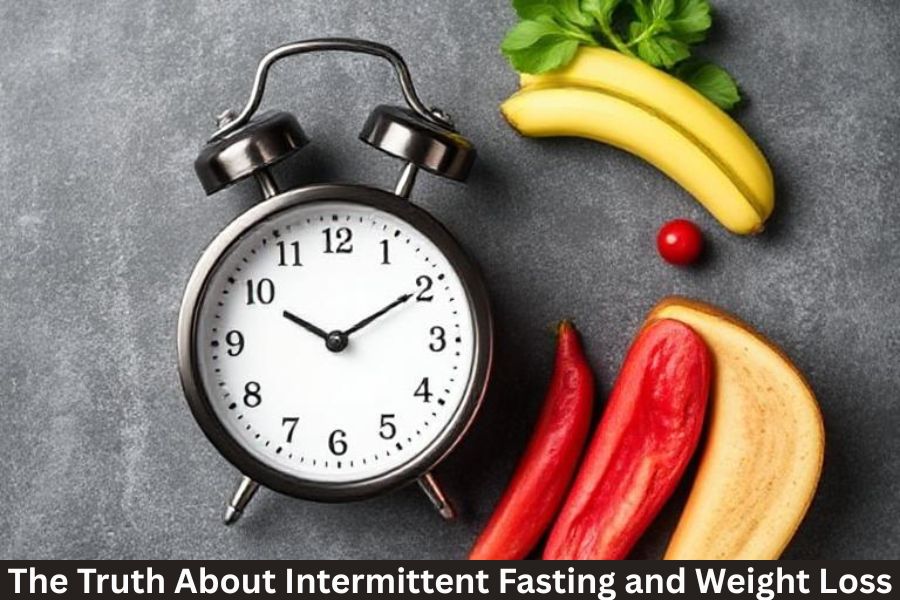Intermittent Fasting gained a lot of popularity in recent years, often hailed as a miracle method for weight loss. But does it really live up to the hype? In this article, we shed light on the mechanism of intermittent fasting, its effect on weight loss, and whether it holds a promise as a long-term approach for health.
What is Intermittent Fasting?
Before we get into the weight-loss aspects, let’s take a hard look at what intermittent fasting really is. Simply put, intermittent fasting is an eating pattern that cycles through times of eating and fasting. It says nothing about what foods to eat; it is merely concerned with when to eat. Some favorite methods include:
- 16/8 method: Fasting for 16 hours and eating within 8 hours.
- 5:2 method: Normal eating for 5 days a week and drastically reducing (about 500-600 calories) calorie intake for 2 days.
- Eat-Stop-Eat: 24-hour fasts occurring once or twice per week.
There are benefits unique to each method, but at its heart, it is about lengthening the period that you abstain from eating and that does trigger several metabolic changes within the body.
How Does Intermittent Fasting Work for Weight Loss?
1. Calorie Restriction: This is the primary reason why intermittent fasting works for weight loss. Limiting your eating window for about eight hours will actually lead to most people naturally cutting back calorie intake. For example, you forgo breakfast and snacks between meals, and instead of three meals, you eat only two, thus cutting down on the calories.
2. Increases Basal Metabolism Rate: During fasting, the body experiences certain metabolic changes. For instance, insulin levels fall, thereby making it easy for the body to burn fat. Indeed, studies reveal that fasting helps enhance metabolic rate by up to 14 percent, thus enabling fat burning more effectively.
3. Fat Burning: Fasting will deplete the body’s glycogen (stored sugar) reserves during the fast and then cause it to break down fats for energy. This usually occurs naturally by the time glycogen starts to finish. In other words, your fasting will stimulate your fat burn for energy, thus hastening fat loss.
The Science Behind Intermittent Fasting and Weight Loss
Multiple studies have been presented supporting the notion of intermittent fasting as a weight-loss tool for the masses. One review of studies established particularly that intermittent fasting can lead to a 3-8% reduction in body weight in a period of 3 to 24 weeks, which is substantial compared to traditional calorie-restricted diets.
In intermittent fasting, weight is not only lost; you can treat insulin resistance, lower inflammation, and, therefore, minimize the risk incidences of chronic disorders like type 2 diabetes and heart disease.
Common Myths About Intermittent Fasting
Although intermittent fasting has been gaining attention lately, there are some myths surrounding this phenomenon. Let us debunk some of them:
1. You Have to Fast for Hours to See Results
What some people here believe is that fasting for long periods of time (24 hours or more) is the only sure way to lose weight. Shorter fasting periods such as the 16/8 method are equally effective and much more viable long term.
2. You Can Eat Anything During Your Eating Window
It does not matter what the fasting pattern advises to eat, but you need to eat healthy foods relative to your eating phase. Eating foods high in calories and lacking in nutrition can shield the effects of fasting. The objective is to feed your body with good nutrition instead of eating unjustified food within the set window.
3. Fasting Slows Down Your Metabolism
Most people get scared to see that it’s going to slow down fasting in their metabolism. The fact is, intermittent fasting can actually ramp up your metabolism in the short term by stimulating the release of norepinephrine, a hormone that helps to burn fat.
Intermittent Fasting: Is It Safe?
There, however, are exceptions to intermittent fasting where caution should be exercised or advice sought. Below are groups that should avoid embarking on IF or at least consult a physician:
1. Pregnant And Breastfeeding Ladies
Since pregnancy and breastfeeding demand extra calories, fasting may not be suitable at these periods. It would be best to always check with your healthcare provider before attempting intermittent fasting.
2. People with Eating Disorders
Intermittent fasting will go on to trigger an unhealthy relationship with food, especially for anyone who has a history of eating disorders. Give priority to mental health; if you are thinking about fasting, talk with either a therapist or healthcare provider.
3. Children and Adolescents
Generally, fasting is not advised for any growing kid or teenager, for it could interfere with growth and development. However, the approach can be entertained, under medical supervision, in case of an older teenager.
The Pros of Intermittent Fasting
1. Simplicity
Unlike traditional dieting, intermittent fasting doesn’t require you to count calories or track macronutrients. After you get used to your eating pattern, it’s actually easy to follow.
2. Flexibility
There is no one method of IF that fits everybody. You are free to choose which method suits your lifestyle best, whether that means fasting every day or only a couple of times a week.
3. Supports Autophagy and Cellular Repair
Fasting stimulates autophagy, which is when your cells start to break down and get rid of damaged components. This could help improve longevity and stave off some other diseases.
4. No Need for Special Foods or Supplements
Unlike fad diets, intermittent fasting doesn’t require purchasing expensive supplements or specialty foods. It’s all about the timing of your meals.
The Cons of Intermittent Fasting
1. Hunger and Irritability
By far the biggest downside of intermittent fasting is how uncomfortable it feels in the beginning. Your stomach will rumble with hunger, and you may become irritable. However, as you get used to the schedule, these feelings begin to fade away.
2. Social Disruptions
It is sometimes hard to keep fasting while you’re off with your friends to parties or even just hanging out with old pals for a drink. With the eating window restricted in such a way, it might not be an easy thing to do socially.
3. Not Sustainable for Everyone
Although for many people interdiction will do well, it would not be the best pick for everyone. Some would find it too restricting and hard to maintain in the long haul.
Is Intermittent Fasting a Sustainable Approach for Long-Term Weight Loss?
Intermittent fasting can work well for weight loss, but its sustainability is vital. For permanent results, one must keep in tune with the body and alter the fasting schedule when it is required. A well-balanced diet consisting of food rich in nutrients and regular exercise is the backbone of the whole process of losing weight.
Conclusion
Intermittent fasting could be a great way to get rid of unwanted pounds for many people, especially when combined with healthy eating and vigorous exercise routines. The benefits extend beyond weight loss to improving metabolism, enhancing insulin sensitivity, and performing cellular repairs. But, once again, think about your lifestyle and preferences before you put yourself on this insane eating plan. It is certainly not for everyone, yet for many, intermittent fasting is a simpler, flexible, and most importantly, sustainable way to manage their weight and health.
FAQs
1. Can intermittent fasting make you lose weight?
Yes, intermittent fasting assists in losing weight by reducing calorie intake, enhancing metabolism, and encouraging fat burning.
2. How long should I fast for weight loss?
The 16/8 fasting style-Fasting for 16 hours and eating in an 8-hour window-is among the most common and best styles to sustain for weight loss.
3. Can I drink water during intermittent fasting?
Yes, water, black coffee, and tea (without sugar) are allowed during fasting periods and can even help reduce hunger.
4. Will intermittent fasting cause muscle loss?
With correct application, Intermittent fasting should not cause muscle loss; however, it is equally important to maintain adequate protein intake and include strength training.
5. Is intermittent fasting safe for everyone?
Intermittent fasting, for most adults, is safe; however, it should be avoided by pregnant or breastfeeding women, children, as well as individuals with certain health cases unless otherwise advised by a medical doctor.




